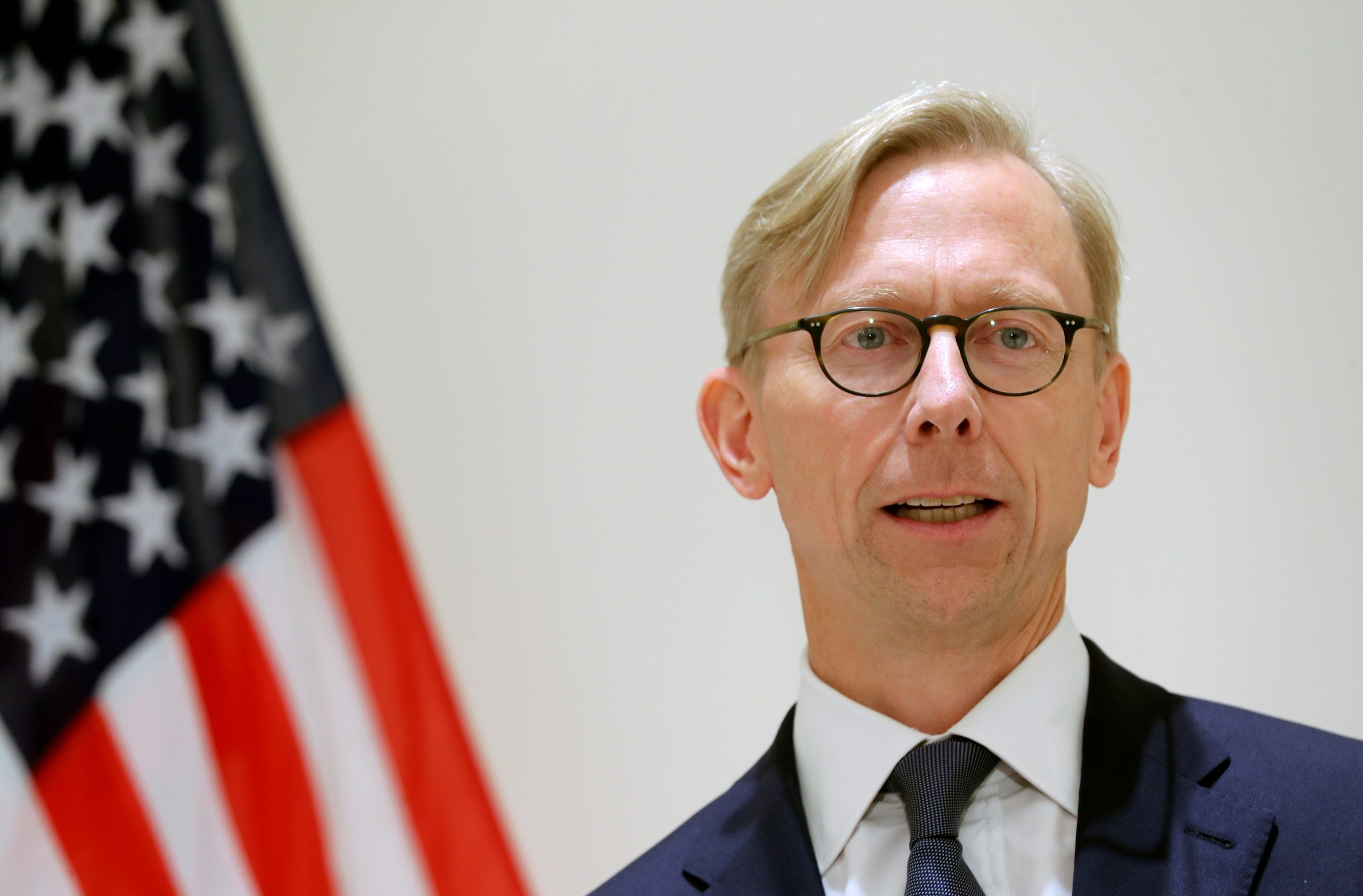The United States is “hopeful” the U.N. Security Council will extend an arms embargo on Iran before it expires in October, a top U.S. State Department envoy said on Thursday, despite a key Russian official signaling that Moscow opposed such a move.
Brian Hook, the U.S. Special Representative for Iran, said the United States had drafted a Security Council resolution on the issue, which would need nine votes in favor and no vetoes by Russia, China, the United States, Britain or France to pass.
Some diplomats say the United States would likely struggle to get Iranian allies Russia and China to allow an arms embargo extension. But Hook repeatedly disagreed during a news conference, saying: “We are hopeful.”
“Russia and China have great equities in a peaceful and stable Middle East, and Iran’s sectarian violence and its export of weapons is the principal driver of instability in the Middle East today,” Hook said.
He also suggested that Washington did not plan to move ahead quickly with its push for the arms embargo extension.
“Our focus is on engaging in thoughtful and measured diplomacy with all the relevant parties to successfully negotiate a renewal of the U.N. arms embargo,” he said. “We’re going to focus on that in the months ahead.”
Russia’s Ambassador to International Organizations in Vienna, Mikhail Ulyanov, told Russia’s Kommersant newspaper on Tuesday that Moscow was opposed to such a move.
“They are well aware of our negative attitude towards this step and allegedly are working on a fall-back option,” said Ulyanov, whose previous job was head of the nonproliferation and arms controls department at Russia’s foreign ministry.
The fall-back option is for Washington to trigger a return of all U.N. sanctions on Iran if it fails to get the Security Council to extend the arms embargo – a strategy confirmed by a U.S. official on Monday. Diplomats said Washington faces a messy battle if it carries out that threat.
Washington has shared the strategy and an arms embargo draft with Britain, France and Germany, the U.S. official confirmed. Diplomats said the draft resolution has not been shared with the remaining 11 council members, including Russia and China.
The United States believes it could trigger a so-called snapback of all U.N. sanctions on Iran, including the arms embargo, using a process outlined in a the 2015 deal between Iran and world powers that prevents Tehran from developing nuclear weapons in exchange for sanctions relief.
“Their reasoning is ludicrous,” said Ulyanov.
It is a move likely to be challenged, diplomats said, because U.S. President Donald Trump quit the nuclear agreement in 2018 and described the accord from Barack Obama’s presidency as “the worst deal ever.”
Hook declined to elaborate on what other efforts Washington would deploy if the United States failed in its bid to get the arms embargo extended by the Security Council.
“The arms embargo must be renewed and we will exercise all diplomatic options to accomplish that,” he said.
(Writing by Michelle Nichols; Editing by Mary Milliken and Jonathan Oatis)

























 Continue with Google
Continue with Google